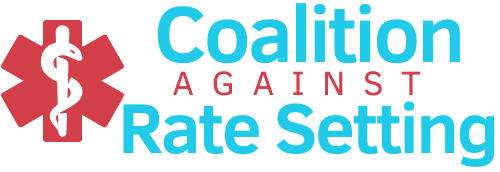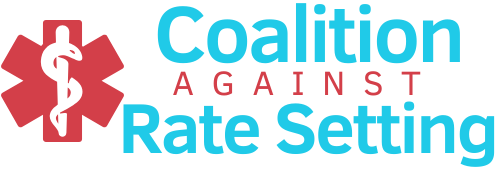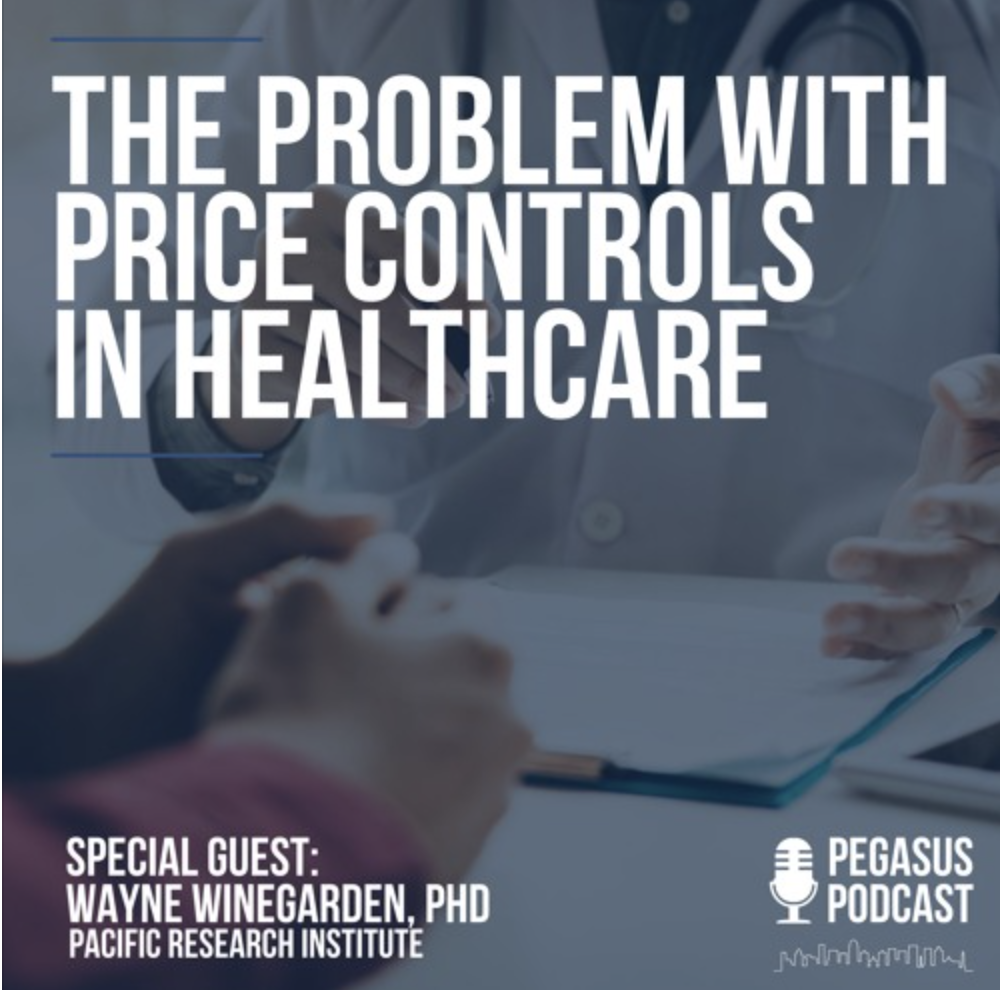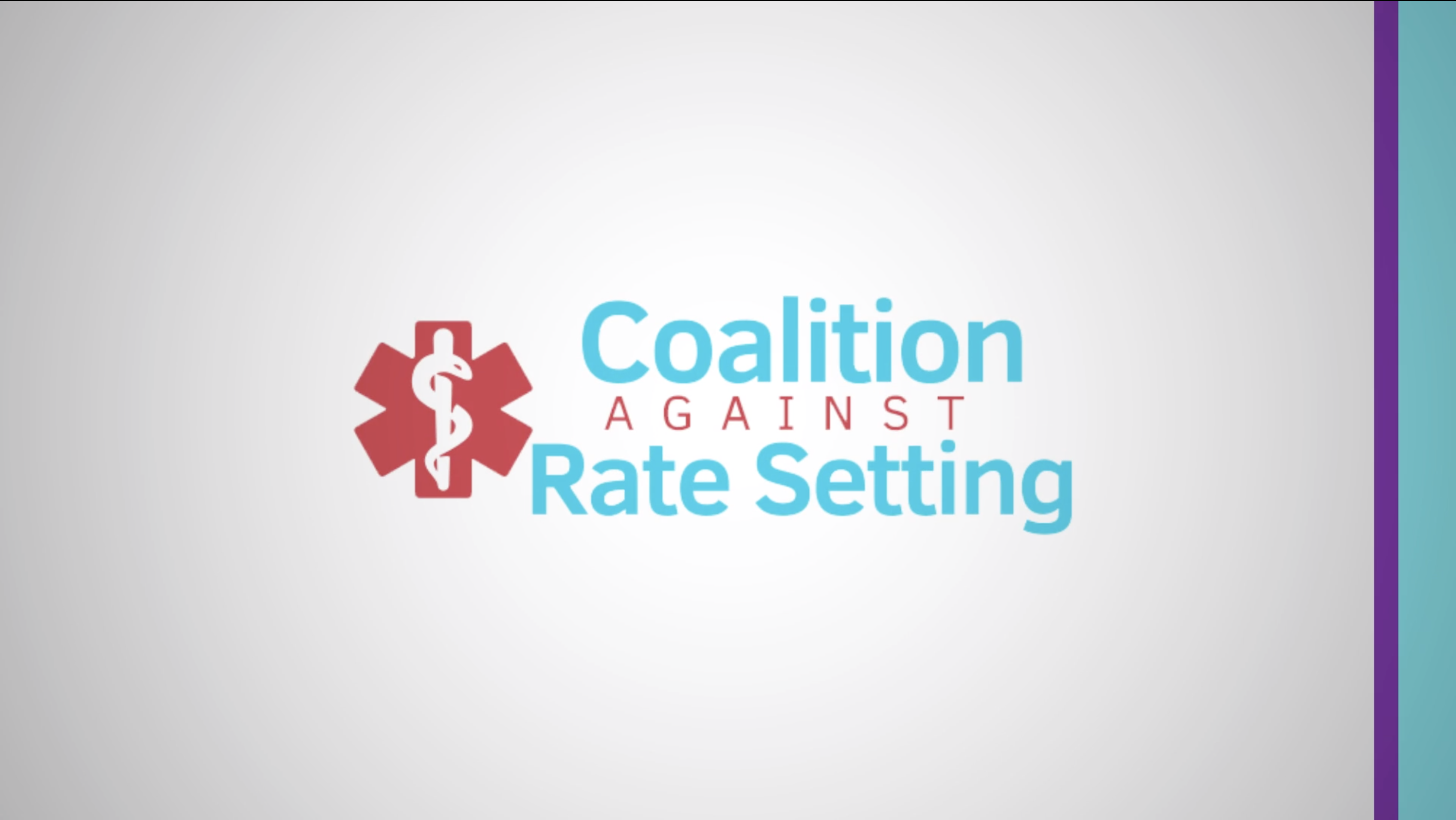The Coalition Against Rate-Setting is an alliance of like-minded organizations that recognizes the perils of bureaucrats setting prices in the American healthcare system.
The Coalition stands in opposition to rate-setting proposals by lawmakers and understands that price-fixing is no solution to the pressing problem of surprise medical billing.
The Coalition also seeks to educate members of Congress and patients about the unintended consequences of government meddling in medical decisions and present the perspectives of doctors and patients to policymakers.
The Coalition Against Rate-Setting is an alliance of like-minded organizations that recognizes the perils of bureaucrats setting prices in the American healthcare system.
The Coalition stands in opposition to rate-setting proposals by lawmakers and understands that price-fixing is no solution to the pressing problem of surprise medical billing.
The Coalition also seeks to educate members of Congress and patients about the unintended consequences of government meddling in medical decisions and present the perspectives of doctors and patients to policymakers.

Our Principles
- The free market, and not government, is best suited to deliver quality healthcare to Americans.
- The federal government has a lengthy history of interfering in healthcare, making the problems it seeks to solve even worse.
- Obamacare has led to a systematic narrowing of insurance networks, resulting in many patients receiving surprise medical bills.
- Attempts by state governments such as California to micromanage healthcare and set rates have proven disastrous for patients, leading to the closure and consolidation of countless practices
Latest News
New Poll Shows Healthcare Rate-Setting Is Politically Unviable
Washington, D.C. – The Taxpayers Protection Alliance (TPA) released a poll of Senate battleground states today showing voters overwhelmingly oppose government schemes like rate-setting as an answer to surprise medical billing. Voters hold doctors and nurses in the highest regard, with more than 90% agreeing the COVID-19 pandemic has shown how valuable and vital their work is as they fight on the front lines. Proposals like rate-setting become even less popular as voters learn more about how it would result in doctor shortages, hospital closures, and harm to rural and underserved communities.
Coalition Opposes Rate Setting in Healthcare
On September 22, 2020, the Coalition Against Rate Setting sent a letter to President Trump, Vice President Pence, Secretary Azar, Administrator Verma, Brooke Rollins urging them to keep rate setting out of a “fix” for surprise medical billing.
Pegasus Institute Podcast: “The Problem With Price Controls in Healthcare with Wayne Winegarden of Pacific Research Institute”
Republicans and Democrats have continued to struggled to find common ground on what should be in the next round of coronavirus relief. More for schools? For state and local governments? The negotiations have seemed to stall for now, but one thing legislators must stay away from as they aim for a final draft is price controls. Price controls, or benchmarking, would be a disaster for America’s healthcare industry. Rural hospitals already operating with razor thin margins would be forced to close and many Americans would lose reliable healthcare access. So, what should be in the final coronavirus relief package? We know one thing that shouldn’t – price controls.
Coalition Releases Video Warning Against Healthcare Rate-Setting
WASHINGTON, D.C. – Today, the Coalition Against Rate-Setting (CARS) released a video featuring free-market analysts and activists urging lawmakers to reject healthcare rate-setting. The video’s release comes almost exactly one month after a letter signed by more than 160 economists warned that government interference in healthcare via price-controls “would hurt access to care, especially for patients in rural areas.” Despite these warnings, lawmakers such as Sen. Lamar Alexander (R-Tenn.) and Rep. Frank Pallone (D-N.J.) are considering capping doctors’ pay as a part of the next phase of Coronavirus-related relief legislation during a time when doctors and nurses are being lauded for their heroic work in treating COVID-19 patients.




